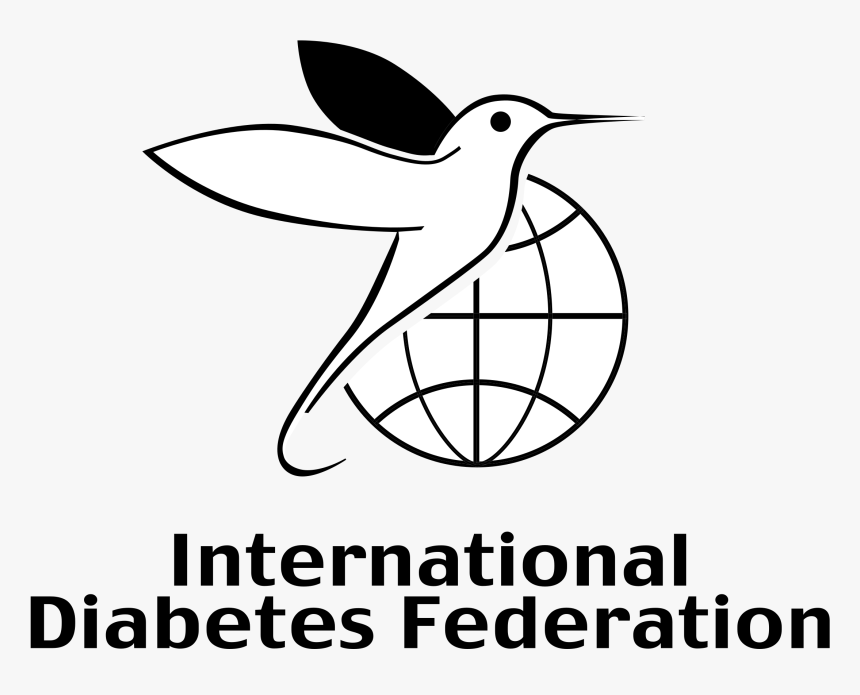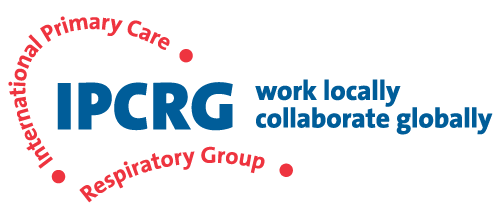
FIP practice transformation programme on non-communicable diseases: Programme booklet (2023)
The FIP practice transformation programme (PTP) on non-communicable diseases (NCDs) aims to provide strategic support and tools
to FIP member organisations to develop and implement pharmacy services that can have a sustained positive impact in the prevention,
screening, management, and treatment optimisation of NCDs for improved patient outcomes and health systems efficiency and sustainability.

FIP Practice Transformation Programme on Non-communicable Diseases: Programme overview (2023)
The FIP practice transformation programme (PTP) on non-communicable diseases (NCDs) aims to provide strategic support and tools
to FIP member organisations to develop and implement pharmacy services that can have a sustained positive impact in the prevention,
screening, management, and treatment optimisation of NCDs for improved patient outcomes and health systems efficiency and sustainability.
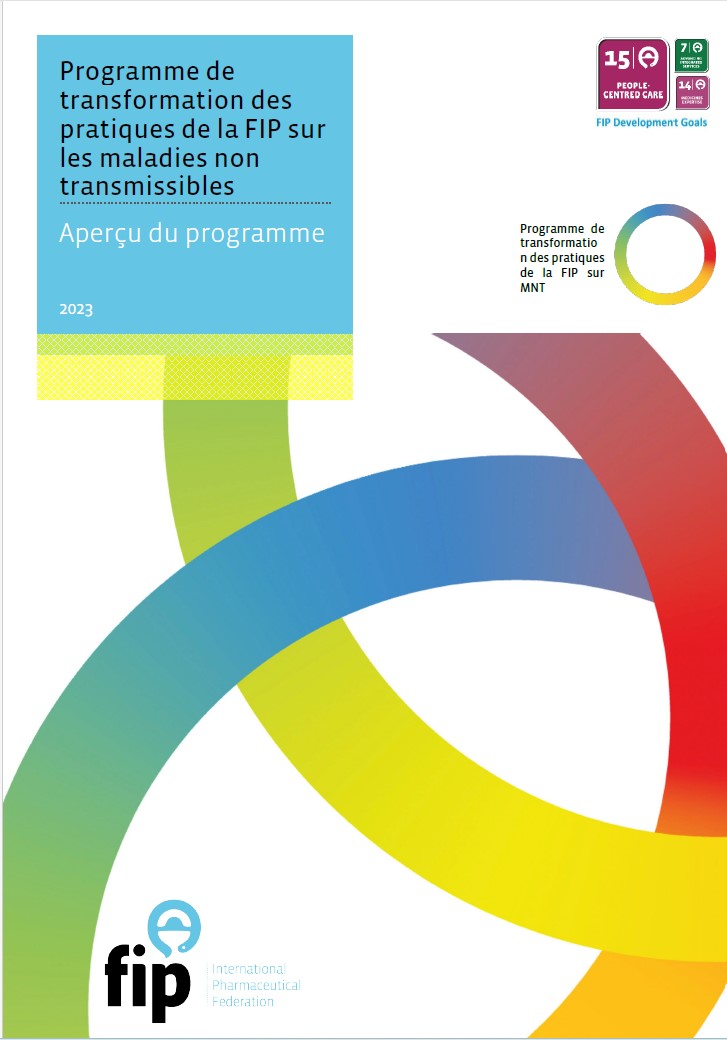
Programme de transformation des pratiques de la FIP sur les maladies non transmissibles: Aperçu du programme (2023)
Le programme de transformation des pratiques (PTP) de la FIP sur les maladies non transmissibles (MNT) a pour objectif de fournir un soutien stratégique et des outils
aux organisations membres de la FIP un soutien stratégique et des outils pour développer et mettre en œuvre des services pharmaceutiques susceptibles d’avoir un impact positif durable sur la prévention, le dépistage, la gestion et l’optimisation du traitement des MNT afin d’améliorer les résultats pour les patients ainsi que l’efficacité et la durabilité des systèmes de santé.
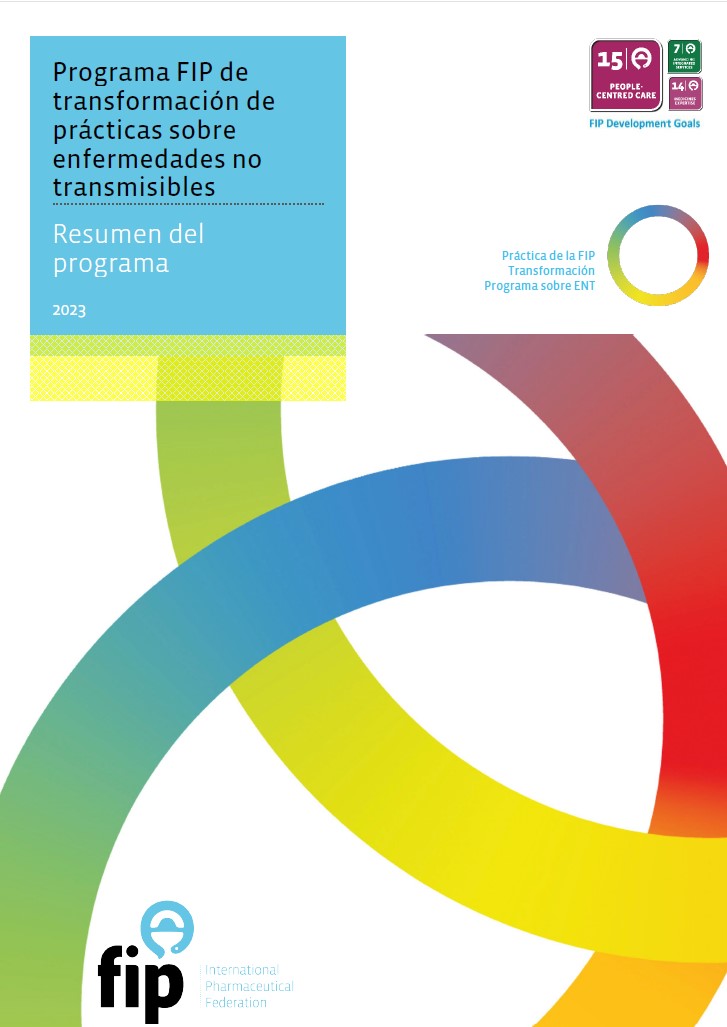
Programa de transformación de prácticas de la FIP sobre enfermedades no transmisibles: Visión general del programa. (2023)
El programa de transformación de prácticas (PTP) de la FIP sobre enfermedades no transmisibles (ENT) tiene como objetivo proporcionar apoyo estratégico y herramientas
a las organizaciones miembros de la FIP para desarrollar e implementar servicios farmacéuticos que puedan tener un impacto positivo sostenido en la prevención,
cribado, gestión y optimización del tratamiento de las ENT para mejorar los resultados de los pacientes y la eficiencia y sostenibilidad de los sistemas sanitarios.
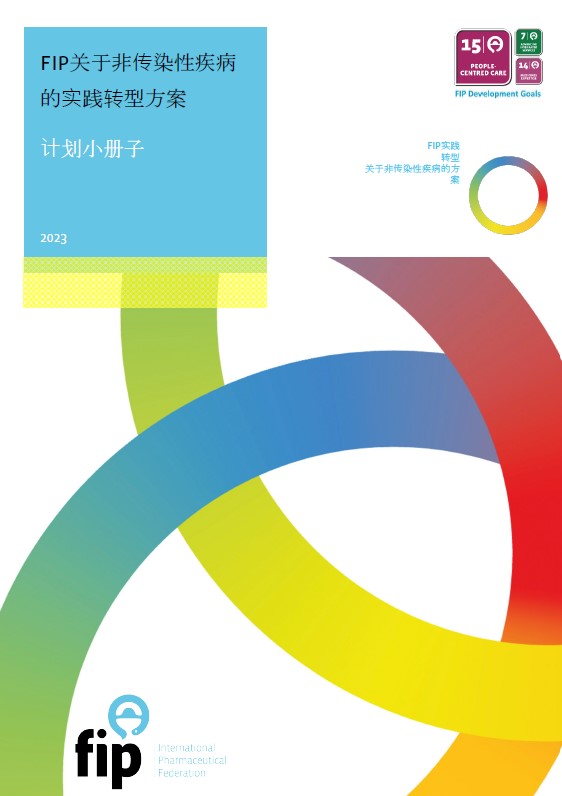
FIP关于非传染性疾病的实践转型方案 : 计划小册子 (2023)
FIP 非传染性疾病(NCDs)实践转型计划(PTP)旨在为 FIP 成员组织提供战略支持和工具
向 FIP 成员组织提供战略支持和工具,以开发和实施能够对预防、筛查、管理和治疗非传染性疾病产生持续积极影响的药学服务、
筛查、管理和优化非传染性疾病的治疗方面产生持续的积极影响,从而改善患者的治疗效果,提高卫生系统的效率和可持续性。
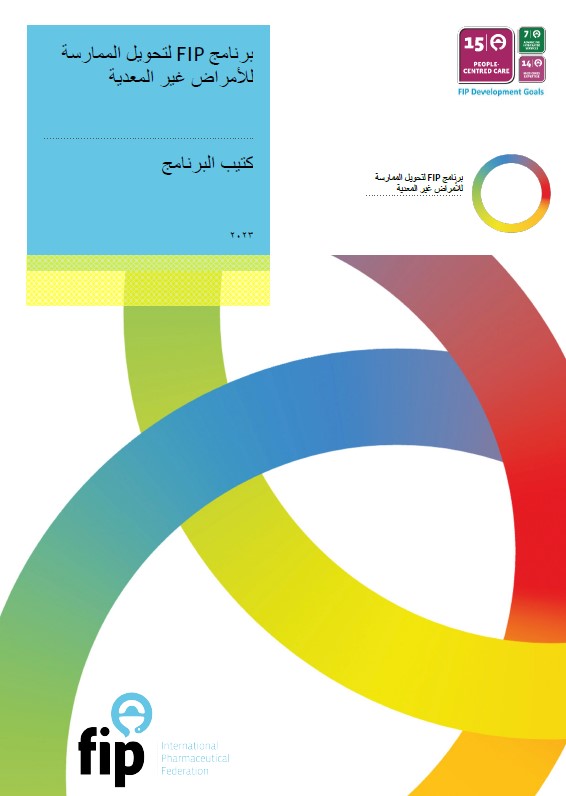
برنامج FIP لتحويل الممارسة للأمراض غير المعدية: كتيب البرنامج (2023)
يهدف برنامج تحويل ممارسات FIP (PTP) بشأن الأمراض غير المعدية (NCDs) إلى توفير الدعم الاستراتيجي والأدوات
للمنظمات الأعضاء في FIP لتطوير وتنفيذ خدمات الصيدلة التي يمكن أن يكون لها تأثير إيجابي
مستدام في الوقاية ،
فحص الأمراض غير المعدية وإدارتها ومعالجتها لتحسين نتائج المرضى وكفاءة النظم الصحية
واستدامتها.

Management of non-communicable diseases: Regulatory self-assessment and development tool for transforming pharmacy practice
Regulators, ministries of health, policymakers and national pharmacy organisations are encouraged to assess regulations in their country related to pharmacy-based care of non-communicable diseases (NCDs) with a development tool developed by FIP’s Forum of Pharmacy Professional Regulators. This tool is based on experiences from countries where pharmacy services targeting NCDs (including testing, measurement of parameters, such as blood pressure and peak expiratory volume, and prescribing or modifying prescriptions) have been successfully introduced and regulated, and on researched pharmacy practice legislation from around the world.

Cardiovascular diseases: A handbook for pharmacists (2022)
This handbook identifies and describes pharmacist-led interventions in cardiovascular disease prevention, screening, management, and treatment optimisation to both support their implementation in pharmacy practice and to support advocacy efforts towards the optimisation and expansion of pharmacists’ scope of practice in cardiovascular diseases and NCDs in general.
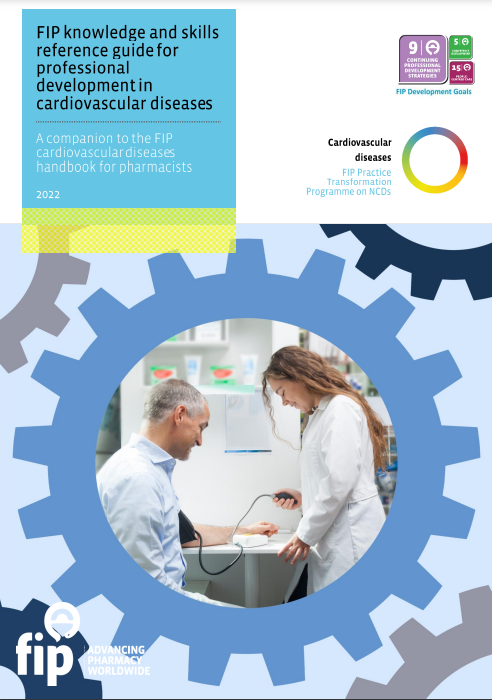
FIP knowledge and skills reference guide for professional development in cardiovascular diseases (2022)
This knowledge and skills reference guide provides a comprehensive list of required knowledge and skills in pharmaceutical and related care to support pharmacists to develop, upskill and refresh knowledge in cardiovascular diseases and related roles in pharmacy. The guide supplements the FIP handbook on cardiovascular diseases for pharmacists and was developed in consultation with a global reference group.

Cancer: A handbook for pharmacists (2022)
This handbook identifies and describes pharmacist-led interventions in cancer prevention, screening, management, and treatment optimisation to both support their implementation in pharmacy practice and to support advocacy efforts towards the optimisation and expansion of pharmacists’ scope of practice in cancer and NCDs in general.
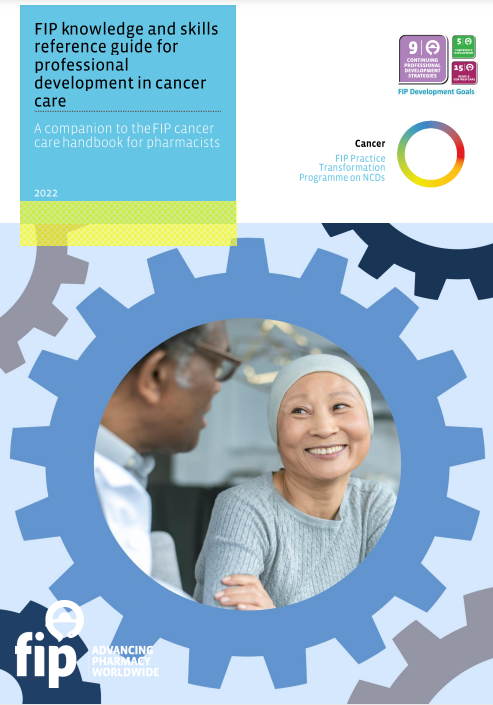
FIP knowledge and skills reference guide for professional development in cancer care (2022)
This knowledge and skills reference guide provides a comprehensive list of required knowledge and skills in pharmaceutical and related care to support pharmacists to develop, upskill and refresh knowledge in cancer care and related roles in pharmacy. The guide supplements the FIP handbook on cancer for pharmacists and was developed in consultation with a global reference group.

Chronic respiratory diseases: A handbook for pharmacists (2022)
The United Nations Sustainable Development Goals prioritise universal health coverage (UHC) and commit to reducing the impact of non-communicable diseases (NCDs) as well as communicable diseases. This handbook is an important enabling tool to achieve those goals because it makes the case for the inclusion of care for chronic respiratory diseases (CRDs) as part of UHC and demonstrates the important role pharmacists have in achieving this.

Knowledge and skills reference guide for professional development in chronic respiratory diseases: A companion to the FIP chronic respiratory diseases handbook for pharmacists. (2022)
This knowledge and skills reference guide provides a comprehensive list of required knowledge and skills in pharmaceutical and related care to support pharmacists to develop, upskill and refresh knowledge in CRDs and related roles in pharmacy. The guide supplements the FIP handbook on CRDs for pharmacists and was developed in consultation with a global reference group.

Mental health care: A handbook for pharmacists (2022)

Knowledge and skills reference guide for professional development in mental health care (2022)
This guide, which is a companion to the FIP mental health care handbook for pharmacists intends to provide an overview of the knowledge and skills needed for pharmacists to deliver mental health services and care
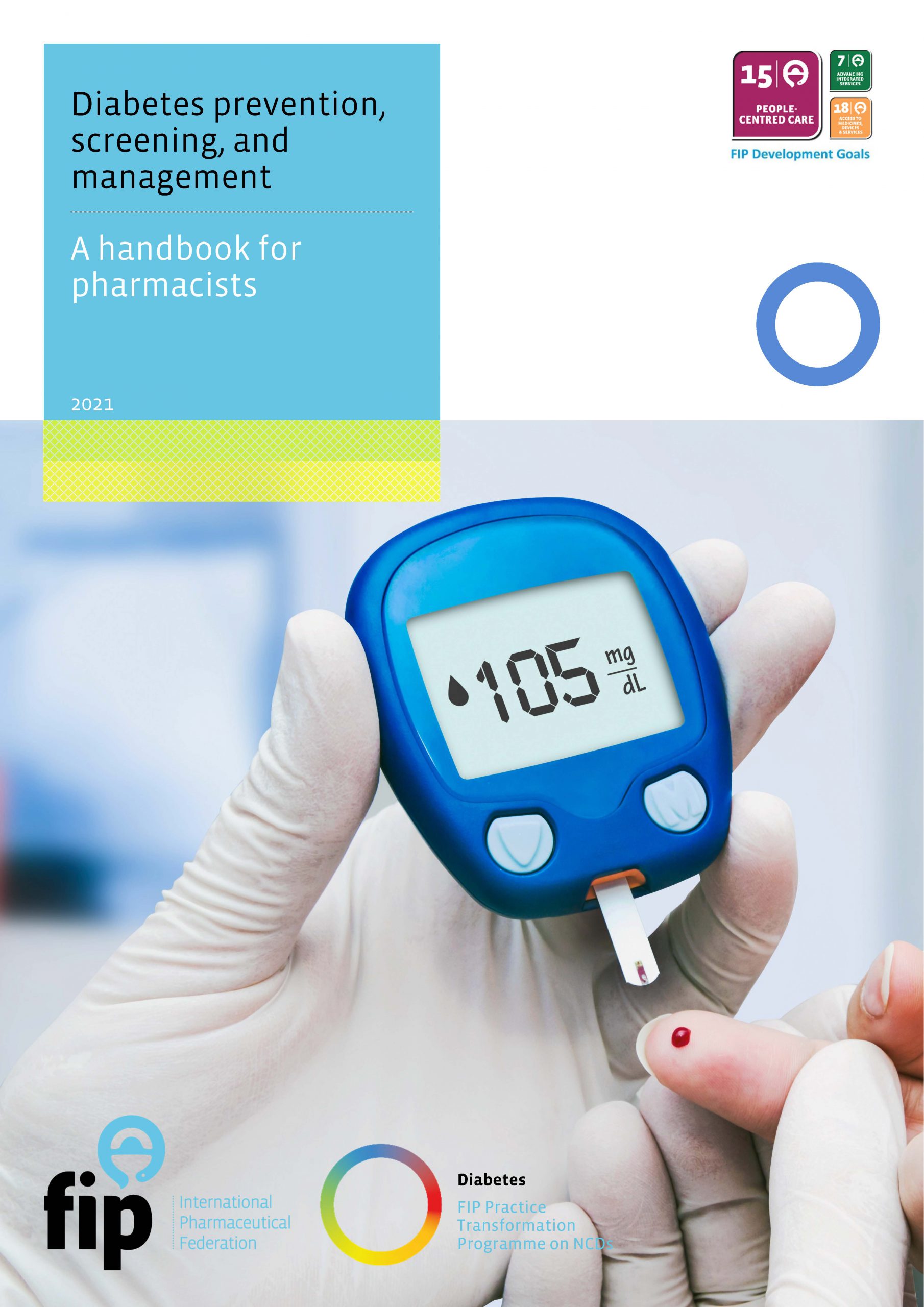
Diabetes prevention, screening and management: A handbook for pharmacists (2021)
This handbook supports the Practice Transformation Programme on Diabetes. It presents an overview of diabetes and describes the various services pharmacists can provide aiming at disease prevention, screening, disease state management and treatment optimisation.








